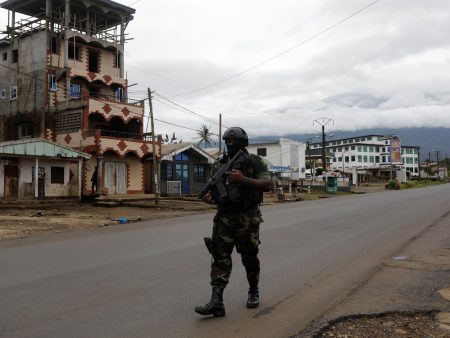A Wave of Change: Opposition Triumphs in African Elections of 2024
The year 2024 witnessed a remarkable surge of opposition victories across the African continent, signaling a growing demand for accountability and change among electorates. From Ghana to Botswana, Mauritius to Senegal, and even the self-governed region of Somaliland, incumbent parties were ousted from power, marking a significant shift in the political landscape. In other nations, including South Africa and Namibia, opposition parties made significant gains, weakening the grip of long-ruling parties. This wave of change reflected common themes of voter frustration with economic stagnation, corruption, and unmet expectations, prompting citizens to punish underperforming governments.
Ghana’s electoral outcome served as a prime example of this trend. Former President John Dramani Mahama, representing the National Democratic Congress (NDC), achieved a landslide victory against the incumbent New Patriotic Party (NPP) and its candidate, Vice President Mahamudu Bawumia. The margin of victory was unprecedented in Ghanaian electoral history, highlighting deep-seated dissatisfaction with the NPP’s governance. The NDC effectively capitalized on public discontent over soaring inflation, corruption allegations, and environmental degradation linked to illegal mining. Apathy among disillusioned NPP supporters, reflected in a lower voter turnout, further contributed to the ruling party’s defeat. The NPP’s free senior high school policy, once considered a potential vote-winner, failed to resonate with an electorate prioritizing economic stability and integrity.
The winds of change were particularly strong in Southern Africa, where liberation movements, once revered for their role in ending colonialism and apartheid, faced declining popularity, especially among younger generations. These historical legacies held less sway with youth who had not experienced the struggles of the past and were more focused on current economic realities. South Africa’s African National Congress (ANC), a symbol of the post-apartheid era, lost its parliamentary majority for the first time in three decades, a consequence of economic hardship, internal party divisions, and public frustration with persistent power cuts. The ANC’s decline necessitated a historic coalition government, sharing power with opposition parties. In Botswana, the Botswana Democratic Party (BDP), which had held power since independence in 1966, suffered a crushing defeat, losing its long-standing dominance to the opposition coalition Umbrella for Democratic Change (UDC). Voters held the BDP accountable for a struggling diamond-dependent economy, signaling a desire for new leadership.
Youth activism and lingering anger over COVID-19 mismanagement also fuelled electoral upsets. Senegal’s March elections saw widespread protests against former President Macky Sall’s attempt to secure an unconstitutional third term, ultimately paving the way for the opposition PASTEF party’s victory. The pandemic era exposed corruption scandals related to the procurement of medical supplies, further eroding public trust in several governments. In Mauritius, perceptions of corruption and government overreach contributed to the defeat of former leader Pravind Kumar Jugnauth. Similar sentiments played out globally, with several governments failing to secure re-election in the post-pandemic period.
While some changes were less dramatic, they still represented significant shifts in power dynamics. Namibia’s ruling SWAPO party, in power since independence, saw its parliamentary majority shrink considerably, though it managed to retain control. In Mozambique, the long-ruling Frelimo party faced post-election protests and challenges to its legitimacy, highlighting ongoing political tensions. These electoral outcomes underscore the growing strength of democratic institutions and the increasing willingness of African citizens to hold their leaders accountable.
The trend toward opposition victories signifies a maturing of democratic processes across the continent. Voters are becoming more discerning, prioritizing performance over historical affiliations or ethnic loyalties. This marks a positive development in regions where colonial legacies and struggles for independence have shaped political landscapes. However, challenges remain, with some elections still marred by irregularities and a recent wave of coups in certain regions. Chad and Rwanda witnessed contrasting election outcomes, with incumbents maintaining strong holds on power through questionable democratic processes.
Ghana’s experience, with its peaceful transition of power and swift concession by the defeated candidate, stands as a model for democratic progress. The resounding defeat of the NPP serves as a cautionary tale for governments across Africa, highlighting the importance of responsiveness to public concerns and the potential consequences of neglecting economic stability and accountability. The wave of opposition victories in 2024 is likely a precursor to further shifts in the upcoming elections in Ivory Coast, Malawi, and other countries, signaling a continued demand for accountable governance and responsive leadership across the African continent. As citizens become more politically aware and engaged, the expectation for transparent and effective governance will only intensify, shaping the future of African politics.










